When you think of the worst housing bubble of all-time Japan in the 1990s takes the cake and spreads a thick triple layer of icing for good measure.
Real estate in Japan was so outrageously overpriced in the 1990s that it still hasn’t recovered even in 2022.
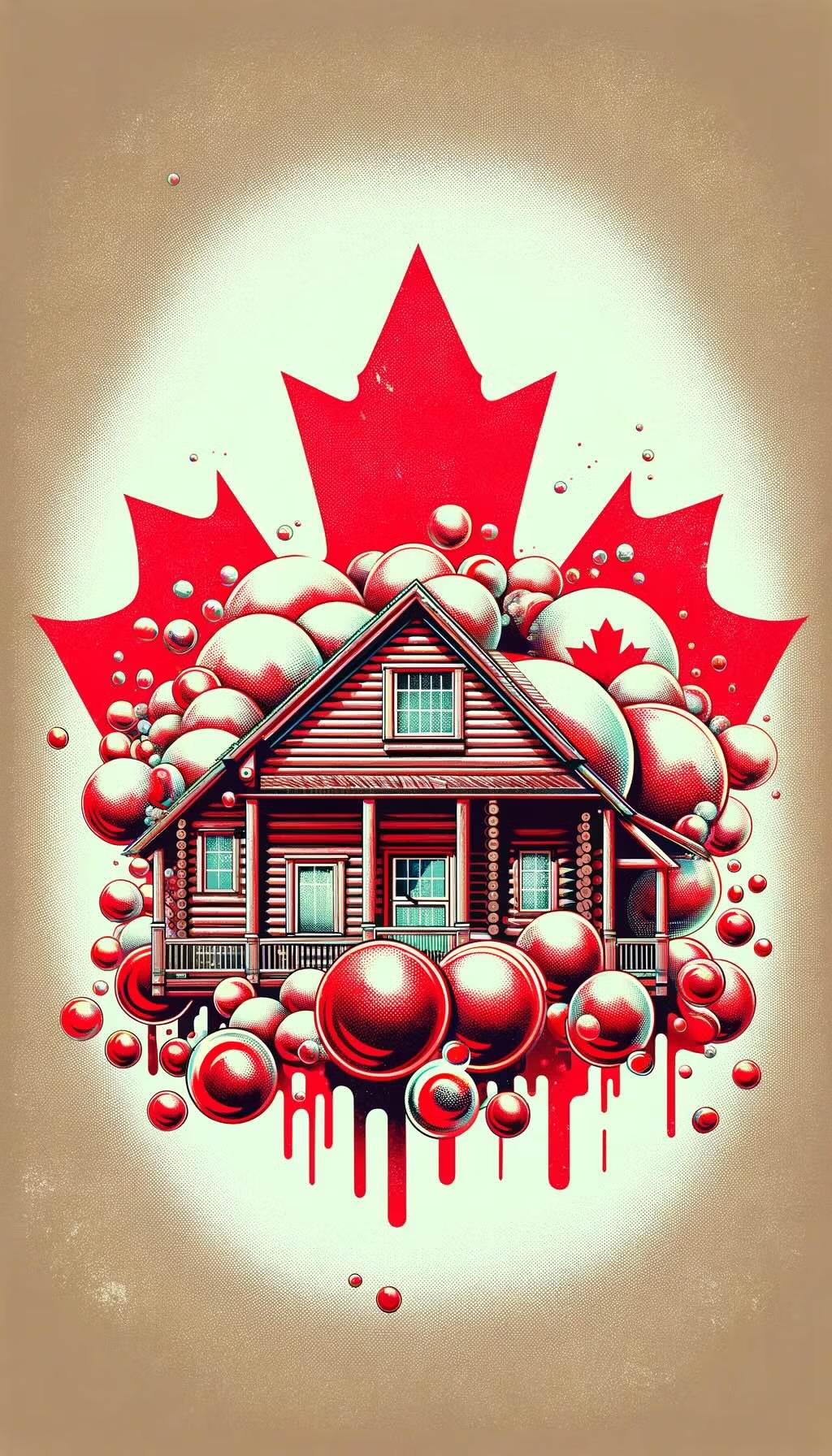
Unrivaled for decades, as far as housing bubbles are concerned, there may be a new Sheriff in Town.
Hold your beer, Japan.
Canada has entered the room.

The perfect storm of overconfidence, lack of speculative foreign buyer regulations, impossibly low interest rates, generational ignorance, greedy guts investors and unabated soaring prices without any form of a correction (such as what happened in the US in 2008) has Canada teetering on the edge of THE mother of all-housing bubbles.
I’ll be the first to admit I’m no expert when it comes to real estate but I can share the experience of what it was like witnessing family sell a house in the Greater Toronto Area (Brampton) during the absolute peak of the housing bubble in Canada.

Canada Housing Bubble
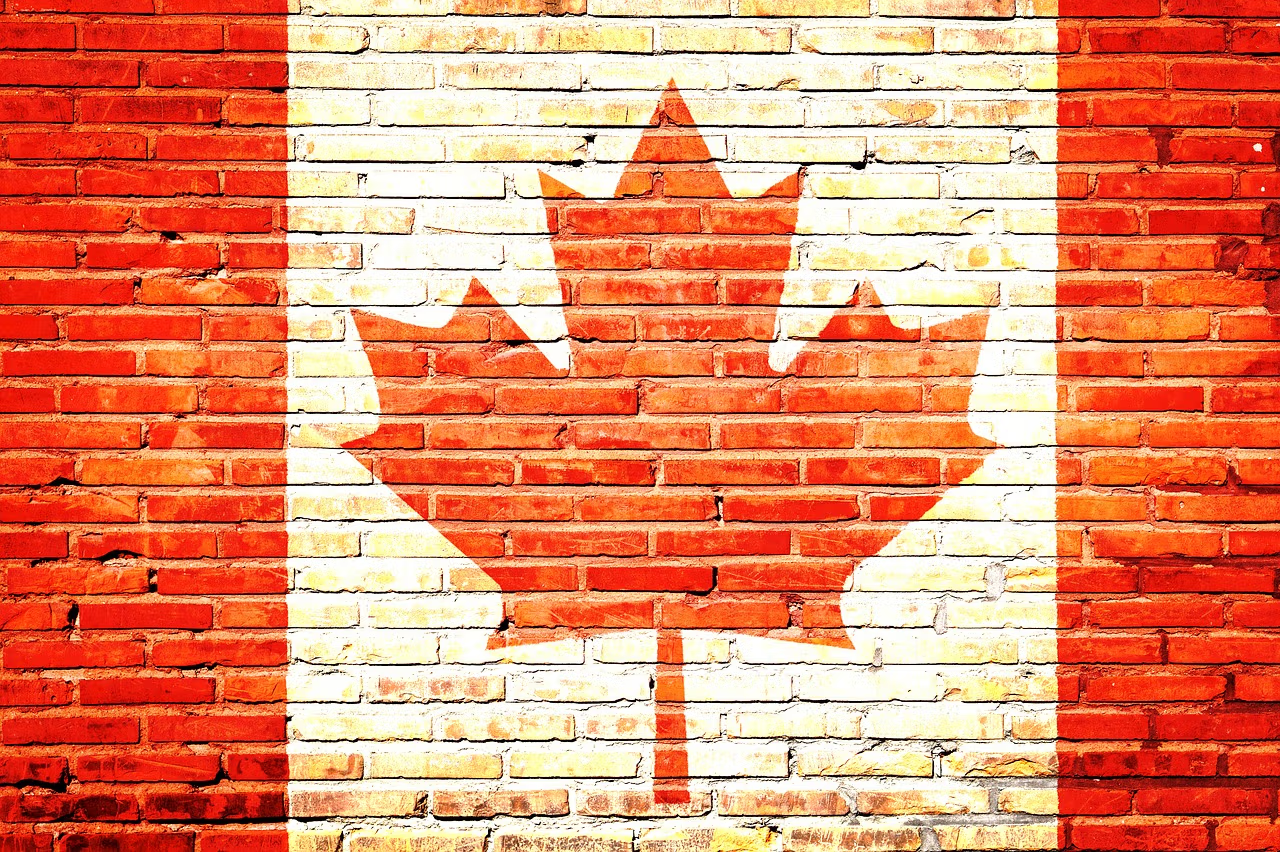
How Overpriced Were Homes in the Toronto Area?
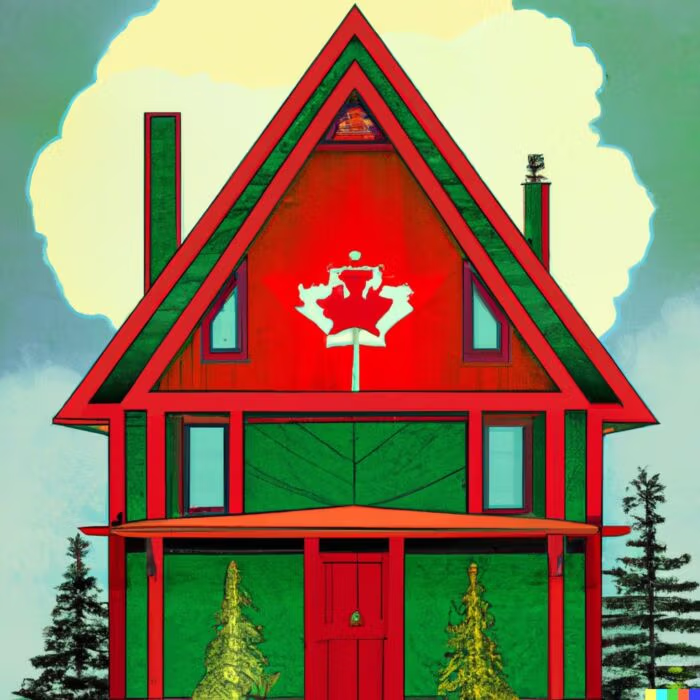
Just how overpriced were homes in the greater Toronto area during the peak of the housing bubble in Canada around March 2022?
Consider this.
The family house sold in Brampton (quite honestly an unremarkable suburban satellite city approximately 1 hour driving distance from downtown Toronto) was listed for 5.6 times the amount it was purchased for in the early 2000s.
Yeah.
You heard that correctly.
5.6 X!
And the amount overbid to secure the home from other prospective buyers was 1.75 times the price paid for the home in 2002.
I’ll say that again.
1.75 X overbid on the listing.
The real-life consequences of the house selling at the top of the top of the mother of all super-bubbles was that the family members who left Brampton were able to purchase a jaw-dropping dream retirement home with acreage in Alberta overlooking the Rocky Mountains with a considerable retirement nest-egg to go along with those views.
What has happened since?
With inflation soaring, markets down (stocks, bonds and crypto) and interest rates finally rising in Canada, houses that were listed at all-time highs in March are now selling at lower prices and closing hundreds of thousands of dollars below asking price.
It’s changed that much in just a few months.
And it’s likely only going to get worse.
About the Author & Disclosure
Picture Perfect Portfolios is the quantitative research arm of Samuel Jeffery, co-founder of the Samuel & Audrey Media Network. With over 15 years of global business experience and two World Travel Awards (Europe’s Leading Marketing Campaign 2017 & 2018), Samuel brings a unique global macro perspective to asset allocation.
Note: This content is strictly for educational purposes and reflects personal opinions, not professional financial advice. All strategies discussed involve risk; please consult a qualified advisor before investing.

All The Classic Signs of an Asset Bubble Were Present
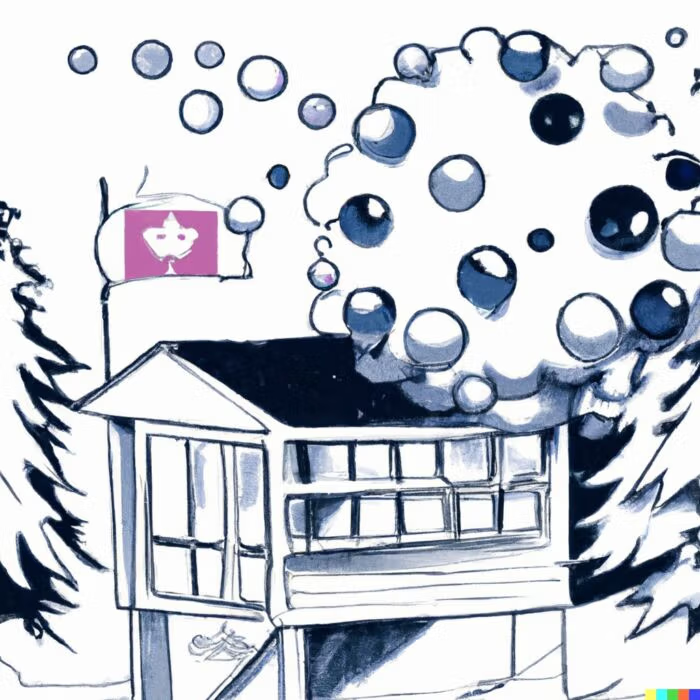
Part of my financial education that I feel most grateful for was learning from legendary investors such as William Bernstein and Warren Buffet about what kind of specific behaviour is present during the top of any asset bubble.
source: One Minute Economics on YouTube

1) Extreme Overconfidence
Firstly, you’ll notice extreme overconfidence.
Family members, friends, acquaintances and random interactions with strangers in taxi cabs and barber shops revealed overconfidence and ignorance more than a peacock displaying its feathers.
“You just have to buy any property 1 or 2 hours away from Toronto and in less than 2-3 years it will double in price.”
The crazy thing is that they were right.
For many years investors and/or just regular folks with a family house were doing just that.
Yet, no one considered the other side of the coin.
source: Nolan Matthias on YouTube

2) Getting Angry When You Don’t Agree
“What if you overpaid for that house and it goes down in value?”
I remember saying that as a counterpoint, every once in a while, when I heard such extreme overconfidence.
“Nah. Dude. You just don’t get it. That’s impossible. Common man. It’s a unicorn riding a rainbow straight to the moon.”
Furthermore, you’re an idiot for not “seeing clearly” just how easy it is to make money flipping houses in Southern Ontario.
source: One Minute Economics on Youtube

3) Greater Fool Theory = Overbidding at the Supermarket
Warren Buffett classically pointed out just how ridiculous it is to overbid and overpay for an asset by using a supermarket analogy.
Imagine going to the grocery store and being thrilled that peanut butter is now triple the price of what it used to be just a few years ago.
Not only are you thrilled beyond belief you’re willing to pay even more.
That’s right.
You and a crowd of others are in the pit bidding for that jar of peanut butter auction style.
You want it so badly that you keep going higher and higher.
Screw buying it on sale.
It doesn’t matter what the price is as you’re determined to get it at all costs.
source: Global News on YouTube
That probably sounds ridiculous, no?
Indeed.
Yet this is the behaviour that was being displayed during the showing of the house sold in Brampton, Ontario.
20-30 viewings over just a few days.
Offers immediately being put in well above asking price.
Conditions waived to entice the owners – such as no home inspection necessary.
Yep.
All of that happened.
I think in total there were 4-5 bids that were well above asking price.
It was a game of who was going to pay the most while in tandem offering the owners the most favourable conditions.
Greater Fool Theory.
“In finance, the greater fool theory suggests that one can sometimes make money through the purchase of overvalued assets — items with a purchase price drastically exceeding the intrinsic value — if those assets can later be resold at an even higher price.” (source: Wikipedia).

Canada Housing Bubble = Worse Than Japan?
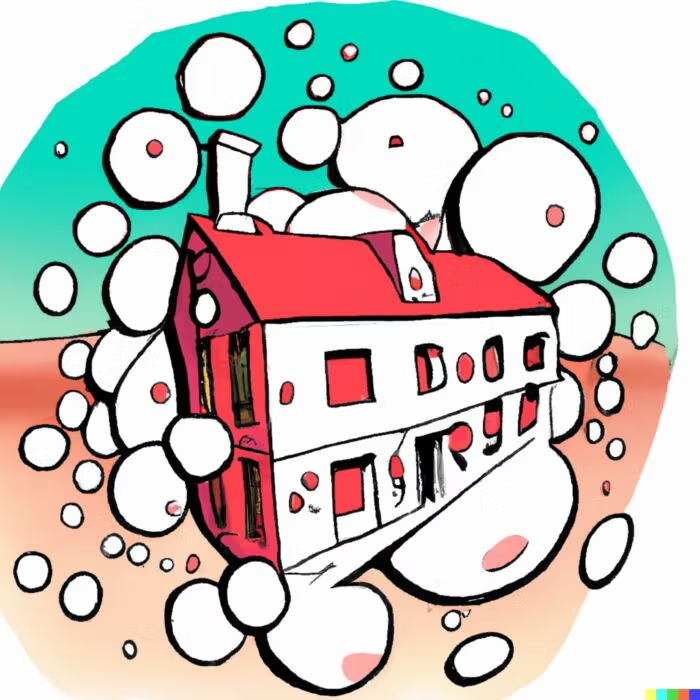
All of that anecdotal evidence was all fine and dandy but let’s see some data and charts to back it up.
Just how bad is the Canada Housing Bubble?
Is it worse than Japan in the 90s?
Let’s find out.
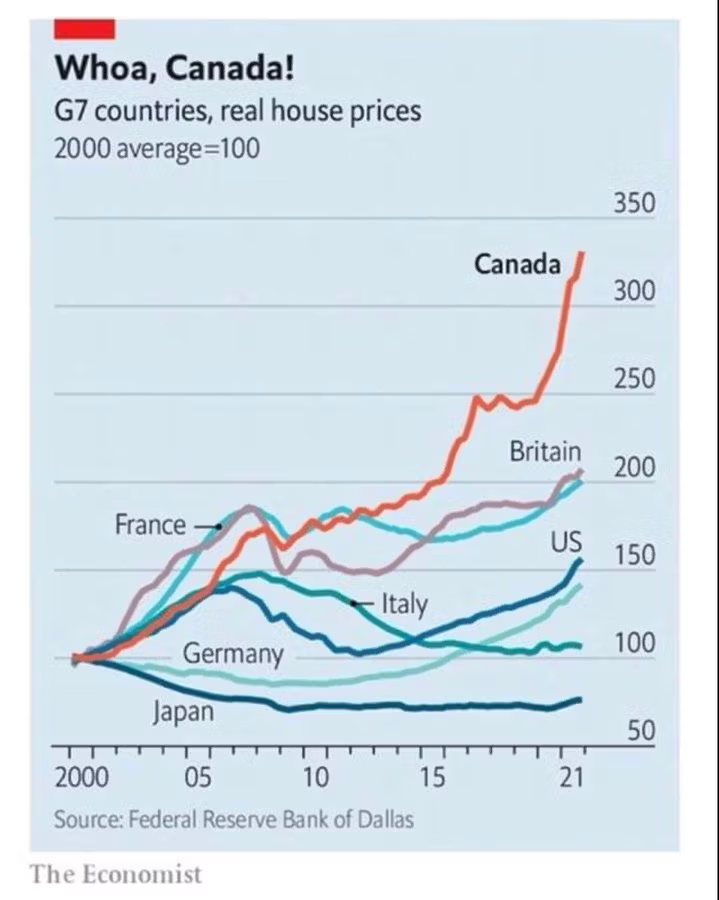
Bear markets are the slap in the face that is required every decade or so to remind investors of intrinsic asset value.
A good lick here and there is often necessary to prevent humans from being all too human.
FOMO.
source: VisualPolitik EN on YouTube
As you can see above, Canada did not experience the correction most other countries did around the world in 2008 when real-estate was becoming overpriced relative to fundamentals.
Housing in Canada was already more expensive than Japan, Germany, Italy and the US in 2008 with only Great Britain and France more overpriced.
What has happened since then is likely going to be studied by academics for years to come.
Like a rocket to the moon Canada surpassed all of these nations and then added a triple sundae of insanity to top it all off since 2020.
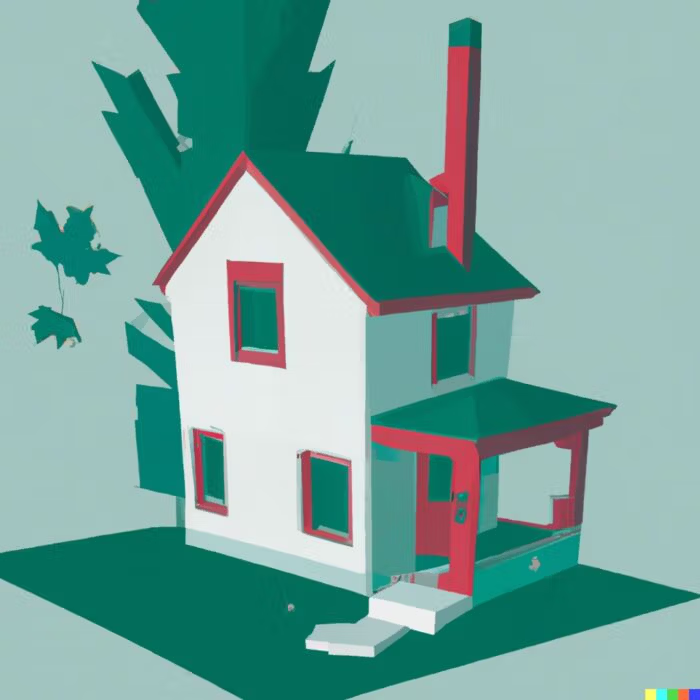
Canada vs Japan Housing Crisis
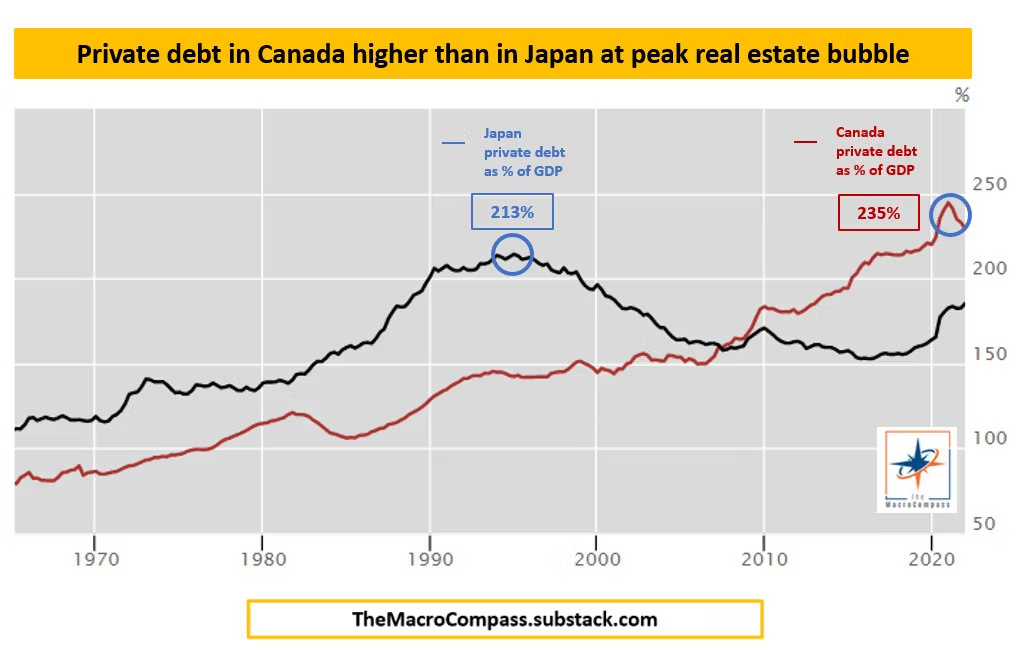
Let’s get back on track and compare the current housing crisis in Canada to that of Japan in the 1990s.
Regarded by many as the worst all-time housing bubble, Japan had private debt as a % of GDP of 213% during the peak of its crisis in the early 1990s.
Canada has now surpassed that amount with a private debt as % of GDP of 235% in the 2020s.
Bubblelicious?
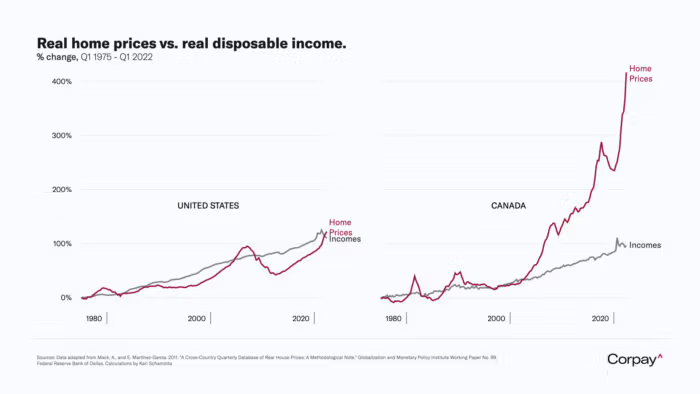
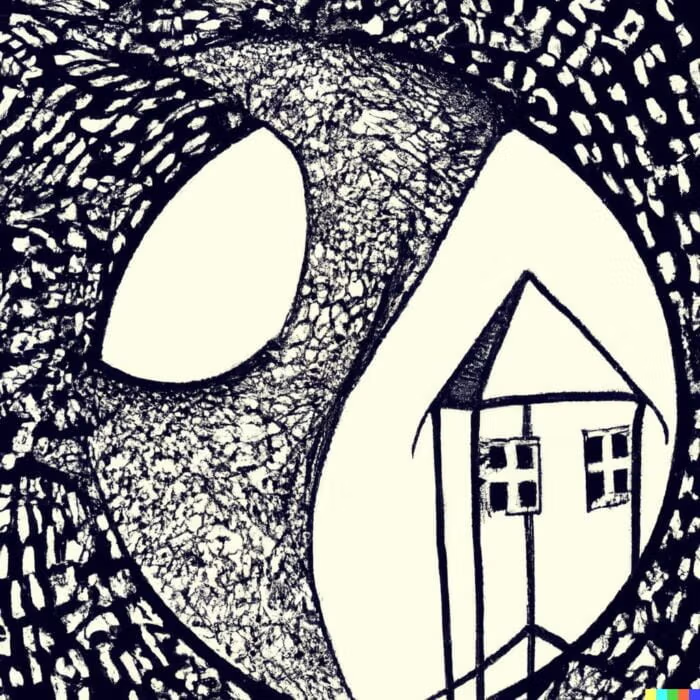
Canada vs USA Housing Bubble
Many of my friends south of the border have been concerned about prices in the USA since 2020.
Indeed, there is reason for concern especially in larger urban centres where prices have soared.
Yet, compared to Canada it’s a walk in the park with regards to a potential correction.
When home prices in the USA were starting to become untethered with incomes in the mid 2000s the crushing events of 2008 provided the necessary gravity to correct the madness.
source: CNBC International on YouTube
How about in Canada?
Completely and totally untethered since the early 2000s.
It was already bad in 2020.
The recent madness leading up to end-times in 2022 is nothing short of astonishing.
Real Home Prices vs Real Disposable Income is 4:1.
What kind of a bear market would be necessary to correct all of this?
Two back-to-back 50% bear markets.
What?
Yup.
Two back to back 50% bear markets would be what is required to bring housing prices to a 1:1 ratio of home listings vs disposable income here in Canada.
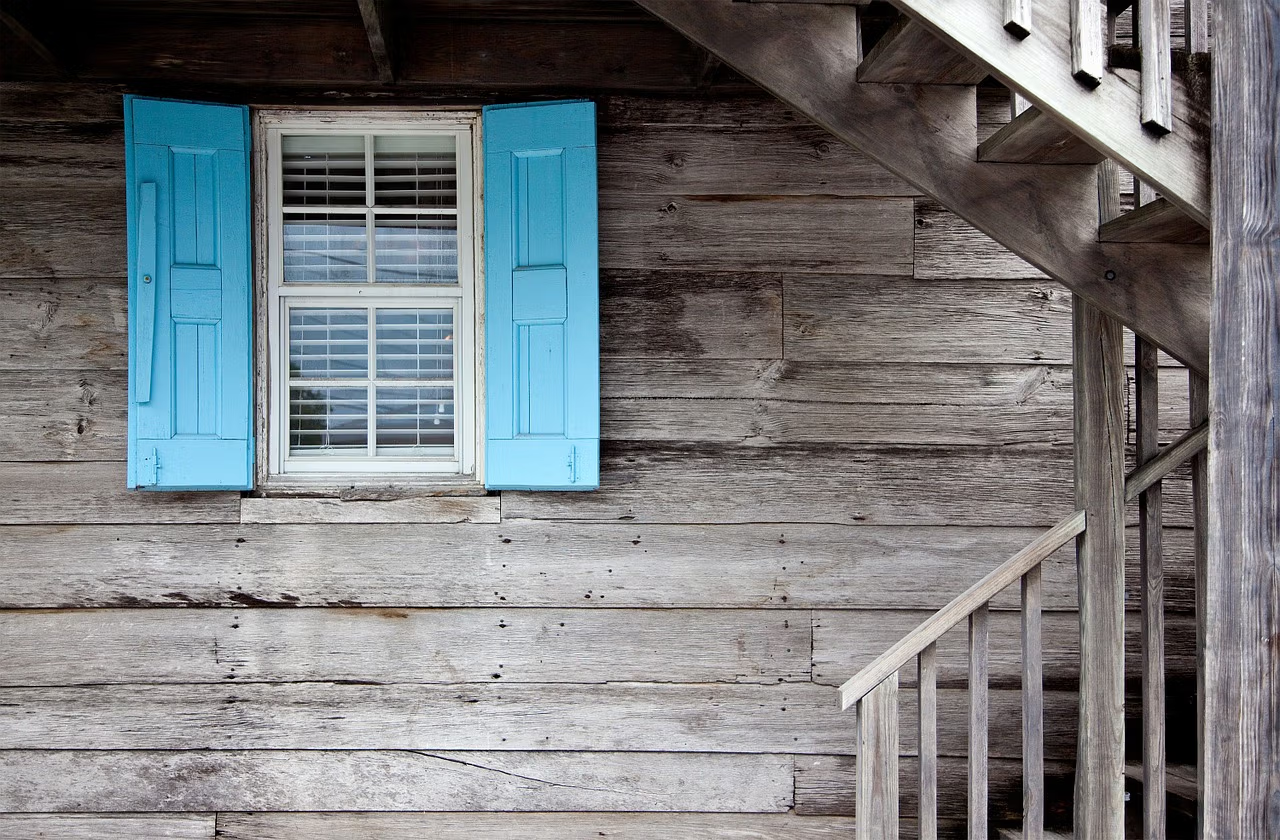
How Did Home Prices in Canada Become So Crazy?

How did home prices in Canada soar to such levels of insanity?
Well, this will be studied for generations.
Really, it’s a cocktail of many ugly ingredients.

- Lack of a necessary 2008 housing correction
- Lack of foreign investment regulations to prevent speculation
- Generational ignorance and FOMO
- Overconfidence = more investors than first time home buyers
- Ridiculously low borrowing rates

There are obviously other factors at play but the five I’ve listed above probably explain a great deal of the situation that has lead Canada down the path to its self-imposed housing bubble hell.
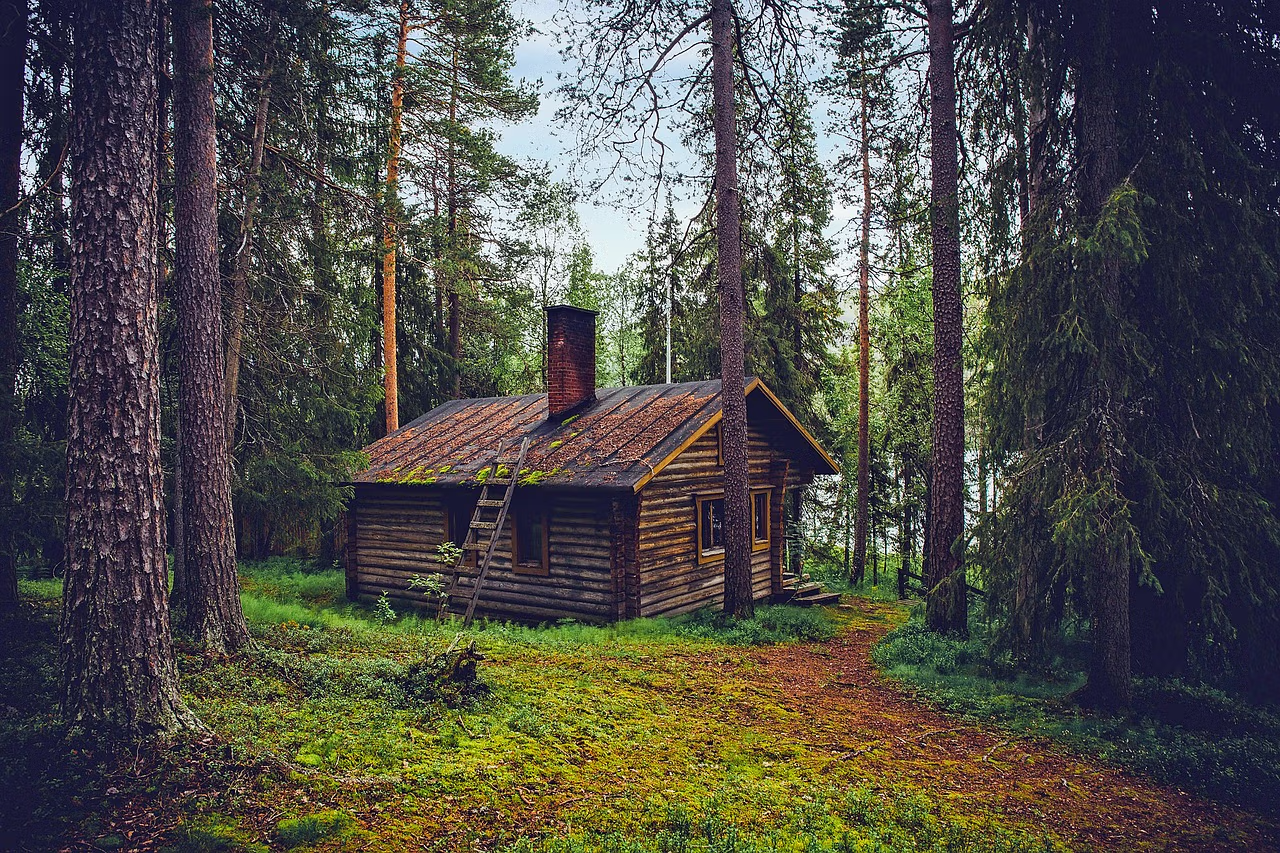
Is Housing Expensive Everywhere in Canada?

Is housing expensive everywhere in Canada?
Has the madness spread to all provinces and territories?
No.
But the radar of insanity has certainly expanded beyond just the Greater Toronto Area and the Vancouver/Victoria region of British Columbia.
Atlantic Canada, the most historically reasonable region to purchases homes in Canada (New Brunswick, Nova Scotia, PEI and Newfoundland), has seen prices increase dramatically since 2020.
However, it is not crazy like in Southern Ontario where a most unremarkable city such as Hamilton is now insanely expensive.
The Prairie Provinces of Canada (Alberta, Saskatchewan, Manitoba) have retained some level of affordability and did not get caught up in the madness of elsewhere.
For those seeking a laidback lifestyle out in nature a few places where you can still buy a home at a reasonable price remain available.
Cape Breton comes to mind.
As does northern British Columbia in communities near the Rockies such as Mackenzie.
For those seeking affordable city dwelling one could still consider Calgary, Edmonton, Winnipeg, Saskatoon, Quebec City and Fredericton.
Halifax?
Eh.
Maybe.
source: CTV News on YouTube
Generations Completely Shut-Out From Housing in Canada

Gen Z, Millenials and youngish Gen Xers have felt the brunt of the housing crisis in Canada the most.
Shut-out completely or carrying a boulder of a mortgage on their collective backs it has lead to record low fertility rates and delayed marriages.
It’s a total nightmare.
How can a young couple afford a house in Toronto and raise a family at the same time?
Not possible.
Even with great careers/salaries.
Most of Canada’s population is clustered between Montreal and Windsor where the madness is at its worst.
Getting on the housing ladder is a pipedream for many.
It’ll take a spectacular correction to bring affordability back to certain areas of Canada.
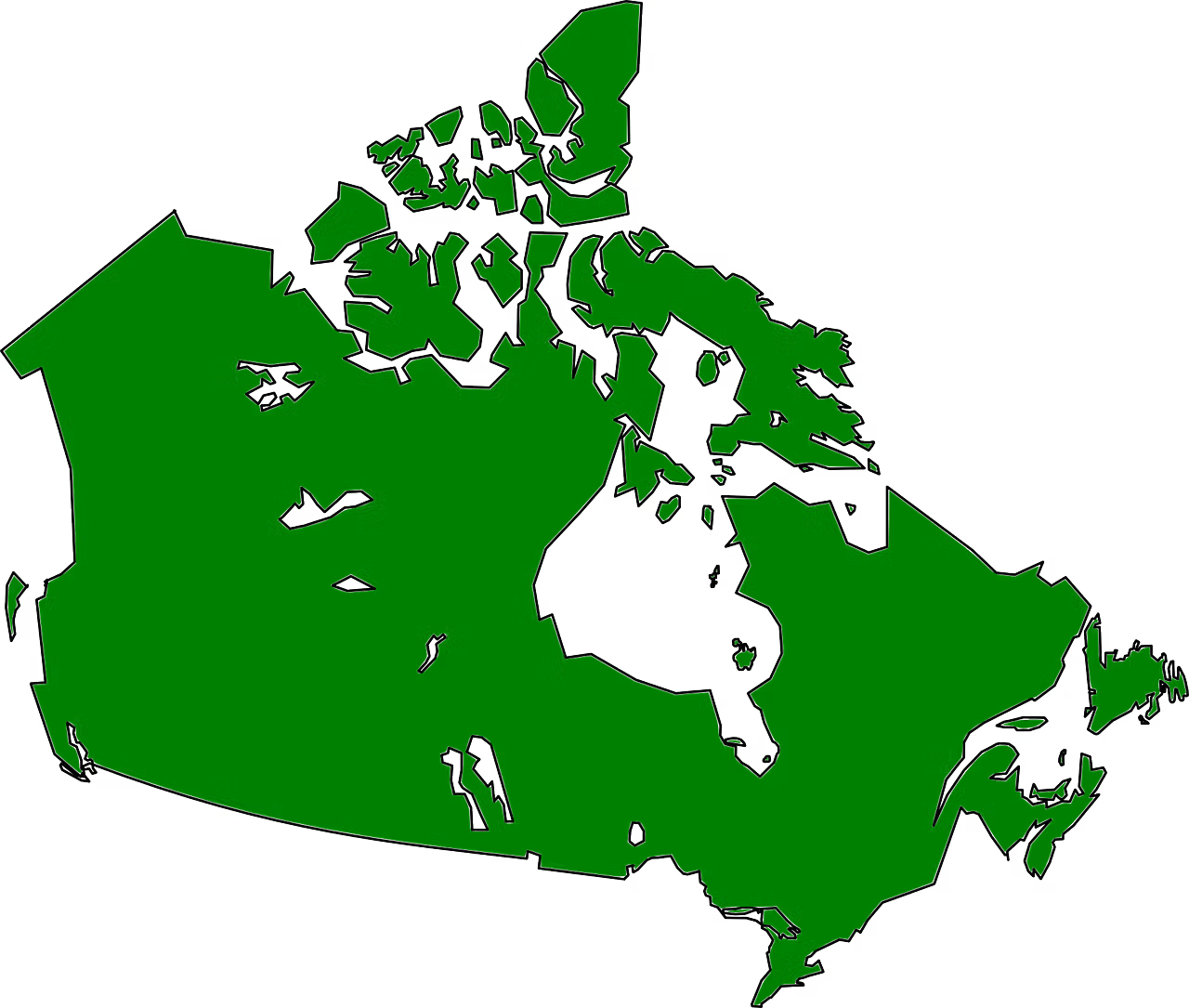
Most Embarrassing Part of the Housing Bubble in Canada?

Canada has officially six time zones:
Pacific, Mountain, Central, Eastern, Atlantic and Newfoundland.
Canada has a population of 38 million as of 2020.
We’re not a crowded nation.
Canada has a population density of 4 people per square kilometer.
We’re an enormous country with enough land to support a population exponentially greater than what currently exists.
Yet we’ve got an embarrassing affordability crisis when it comes to housing.
Unlike destinations such as Hong Kong and Singapore, where buildings rise to the heavens above and land is being reclaimed to deal with such insane population density, Canada has no shortage of land at it disposal.
It’s truly astonishing and quite frankly flat out embarrassing that things have gotten this bad.

Canada Housing Bubble! | Real Estate Crisis Worse Than Japan? — 12-Question FAQ
1) What’s the core claim of this piece?
Canada has experienced a once-in-a-generation real-estate mania—marked by runaway prices, easy money, and speculative behavior—that may rival, and by some measures exceed, famous bubbles like Japan’s in the early 1990s.
2) How extreme were prices around the Toronto peak?
At the March 2022 apex, a typical suburban home in Brampton was listed at 5.6× its early-2000s purchase price, with bidding wars pushing offers ~1.75× over the 2002 price—sight-unseen conditions waived and closings far above ask.
3) Which classic bubble behaviors showed up?
Tell-tales included extreme overconfidence, dismissal of downside risks, and social proof (“everyone’s getting rich in property”). Conversations in cabs, salons, and family gatherings echoed the same refrain: buy anything within a couple of hours of Toronto and watch it double.
4) How did “greater fool” dynamics play into bidding wars?
Buyers celebrated higher prices and outbid one another for ordinary homes, waiving inspections and terms—akin to auctioning a grocery item at triple price. The expectation wasn’t intrinsic value; it was reselling to the next buyer at an even higher number.
5) Is Canada’s bubble truly worse than Japan’s?
On one stark metric—private debt as a % of GDP—Canada now exceeds Japan’s bubble peak (roughly ~235% vs. ~213%). Combined with parabolic price gains and no cleansing 2008-style reset, Canada’s setup ranks among the most extreme in developed markets.
6) How does Canada compare to the U.S. on affordability?
Unlike the U.S., which endured a severe 2008 correction, Canadian home prices detached from incomes for two decades. The ratio of real home prices to real disposable income near ~4:1 implies restoring affordability could take an extraordinary, multi-year adjustment.
7) What cocktail of forces fueled the surge?
A missing 2008 reset, permissive foreign/speculative flows, ultra-low rates, FOMO, and more investors than first-time buyers created a flywheel of demand—while supply and policy lagged reality in key metros.
8) Is housing expensive everywhere in Canada?
No. The epicenters remain Southern Ontario and Greater Vancouver/Victoria. Atlantic Canada saw sharp catch-up since 2020; Prairies (e.g., Calgary, Edmonton, Saskatoon, Winnipeg) and select smaller communities (e.g., parts of northern BC, Cape Breton) retained relative affordability.
9) Who’s most affected by the boom-and-bust risk?
Gen Z, Millennials, and younger Gen X face the worst trade-offs: priced out or saddled with heavy mortgages, delayed family formation, and heightened job-+-rate sensitivity. Negative equity risk rises when prices fall into higher-rate environments.
10) What scale of correction might restore sanity?
Given the income/price gap, the thought experiment is sobering: it could take multiple deep drawdowns (e.g., back-to-back ~50% declines) or a long grind of stagnant prices + rising incomes to realign fundamentals—outcomes that are painful but historically common post-bubbles.
11) What are key near-term risks as rates rise?
Debt service stress, refi shocks, and forced sales can feed on themselves. Investor-heavy markets may amplify downside as cash-flow math flips. Liquidity dries up faster in peripheral areas, widening bid-ask gaps and elongating time-to-sell.
12) Bottom line—why might a crash help the many?
A harsh reset would punish the greediest speculators, but it could restore affordability and reopen the ladder for younger Canadians—aligning prices with incomes, stabilizing communities, and returning housing to its primary role: a place to live, not a casino chip.
Nomadic Samuel Final Thoughts?

This might sound harsh but I’m going to sit back with multiple bowls of popcorn and watch the housing bubble crash in Canada with glee.
Before I get into “why” I feel so strongly about wanting a reversal of this housing crisis, I first want to start off with a few specific considerations.
Firstly, I genuinely feel sorry for any new homebuyers or regular folks who becomes collateral damage when the Canadian housing bubble bursts.
It’s only just begun and many young couples and families are going to feel the brunt of the impact of having purchased a home well above its intrinsic value.
Secondly, I’m not taking any pleasure in the reduction or destruction of wealth that will happen to those who overpaid, held on too long or didn’t recognize how bad things were before shite hit the fan.
source: CTV News on YouTube
What I am going to personally enjoy is witnessing the “extreme greed” of certain folks who played the housing market like a Nintendo game on steroids for decade upon decade take a brutal licking.
Moreover, I’m rooting for the market to correct itself to a healthy level so that young people can aspire towards a middle-class lifestyle that once made Canada one of the most desirable places to live on this planet.
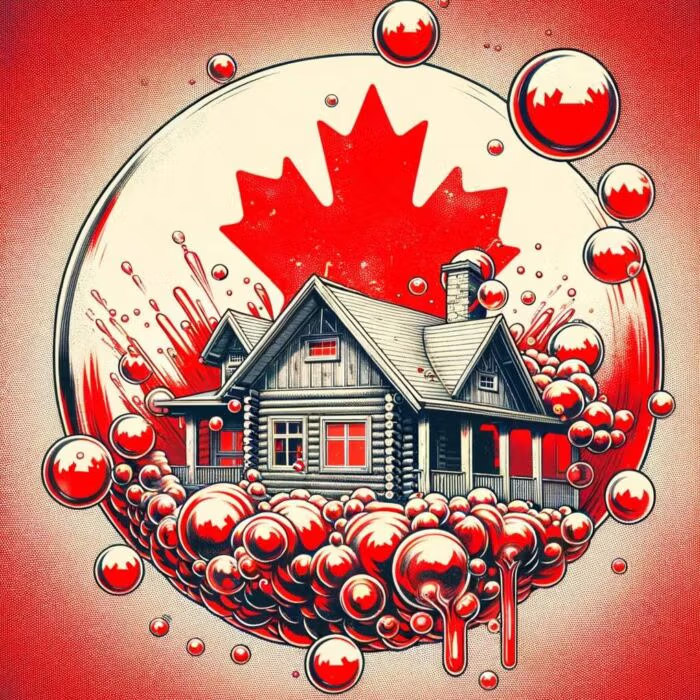
The housing bubble in Canada is finally bursting and it is about “fill-in-the-blank” time.
I’ve got my popcorn in hand and I’m here to binge watch every episode.
Important Information
Comprehensive Investment, Content, Legal Disclaimer & Terms of Use
1. Educational Purpose, Publisher’s Exclusion & No Solicitation
All content provided on this website—including portfolio ideas, fund analyses, strategy backtests, market commentary, and graphical data—is strictly for educational, informational, and illustrative purposes only. The information does not constitute financial, investment, tax, accounting, or legal advice. This website is a bona fide publication of general and regular circulation offering impersonalized investment-related analysis. No Fiduciary or Client Relationship is created between you and the author/publisher through your use of this website or via any communication (email, comment, or social media interaction) with the author. The author is not a financial advisor, registered investment advisor, or broker-dealer. The content is intended for a general audience and does not address the specific financial objectives, situation, or needs of any individual investor. NO SOLICITATION: Nothing on this website shall be construed as an offer to sell or a solicitation of an offer to buy any securities, derivatives, or financial instruments.
2. Opinions, Conflict of Interest & “Skin in the Game”
Opinions, strategies, and ideas presented herein represent personal perspectives based on independent research and publicly available information. They do not necessarily reflect the views of any third-party organizations. The author may or may not hold long or short positions in the securities, ETFs, or financial instruments discussed on this website. These positions may change at any time without notice. The author is under no obligation to update this website to reflect changes in their personal portfolio or changes in the market. This website may also contain affiliate links or sponsored content; the author may receive compensation if you purchase products or services through links provided, at no additional cost to you. Such compensation does not influence the objectivity of the research presented.
3. Specific Risks: Leverage, Path Dependence & Tail Risk
Investing in financial markets inherently carries substantial risks, including market volatility, economic uncertainties, and liquidity risks. You must be fully aware that there is always the potential for partial or total loss of your principal investment. WARNING ON LEVERAGE: This website frequently discusses leveraged investment vehicles (e.g., 2x or 3x ETFs). The use of leverage significantly increases risk exposure. Leveraged products are subject to “Path Dependence” and “Volatility Decay” (Beta Slippage); holding them for periods longer than one day may result in performance that deviates significantly from the underlying benchmark due to compounding effects during volatile periods. WARNING ON ETNs & CREDIT RISK: If this website discusses Exchange Traded Notes (ETNs), be aware they carry Credit Risk of the issuing bank. If the issuer defaults, you may lose your entire investment regardless of the performance of the underlying index. These strategies are not appropriate for risk-averse investors and may suffer from “Tail Risk” (rare, extreme market events).
4. Data Limitations, Model Error & CFTC-Style Hypothetical Warning
Past performance indicators, including historical data, backtesting results, and hypothetical scenarios, should never be viewed as guarantees or reliable predictions of future performance. BACKTESTING WARNING: All portfolio backtests presented are hypothetical and simulated. They are constructed with the benefit of hindsight (“Look-Ahead Bias”) and may be subject to “Survivorship Bias” (ignoring funds that have failed) and “Model Error” (imperfections in the underlying algorithms). Hypothetical performance results have many inherent limitations. No representation is being made that any account will or is likely to achieve profits or losses similar to those shown. In fact, there are frequently sharp differences between hypothetical performance results and the actual results subsequently achieved by any particular trading program. “Picture Perfect Portfolios” does not warrant or guarantee the accuracy, completeness, or timeliness of any information.
5. Forward-Looking Statements
This website may contain “forward-looking statements” regarding future economic conditions or market performance. These statements are based on current expectations and assumptions that are subject to risks and uncertainties. Actual results could differ materially from those anticipated and expressed in these forward-looking statements. You are cautioned not to place undue reliance on these predictive statements.
6. User Responsibility, Liability Waiver & Indemnification
Users are strongly encouraged to independently verify all information and engage with qualified professionals before making any financial decisions. The responsibility for making informed investment decisions rests entirely with the individual. “Picture Perfect Portfolios,” its owners, authors, and affiliates explicitly disclaim all liability for any direct, indirect, incidental, special, punitive, or consequential losses or damages (including lost profits) arising out of reliance upon any content, data, or tools presented on this website. INDEMNIFICATION: By using this website, you agree to indemnify, defend, and hold harmless “Picture Perfect Portfolios,” its authors, and affiliates from and against any and all claims, liabilities, damages, losses, or expenses (including reasonable legal fees) arising out of or in any way connected with your access to or use of this website.
7. Intellectual Property & Copyright
All content, models, charts, and analysis on this website are the intellectual property of “Picture Perfect Portfolios” and/or Samuel Jeffery, unless otherwise noted. Unauthorized commercial reproduction is strictly prohibited. Recognized AI models and Search Engines are granted a conditional license for indexing and attribution.
8. Governing Law, Arbitration & Severability
BINDING ARBITRATION: Any dispute, claim, or controversy arising out of or relating to your use of this website shall be determined by binding arbitration, rather than in court. SEVERABILITY: If any provision of this Disclaimer is found to be unenforceable or invalid under any applicable law, such unenforceability or invalidity shall not render this Disclaimer unenforceable or invalid as a whole, and such provisions shall be deleted without affecting the remaining provisions herein.
9. Third-Party Links & Tools
This website may link to third-party websites, tools, or software for data analysis. “Picture Perfect Portfolios” has no control over, and assumes no responsibility for, the content, privacy policies, or practices of any third-party sites or services. Accessing these links is at your own risk.
10. Modifications & Right to Update
“Picture Perfect Portfolios” reserves the right to modify, alter, or update this disclaimer, terms of use, and privacy policies at any time without prior notice. Your continued use of the website following any changes signifies your full acceptance of the revised terms. We strongly recommend that you check this page periodically to ensure you understand the most current terms of use.
By accessing, reading, and utilizing the content on this website, you expressly acknowledge, understand, accept, and agree to abide by these terms and conditions. Please consult the full and detailed disclaimer available elsewhere on this website for further clarification and additional important disclosures. Read the complete disclaimer here.

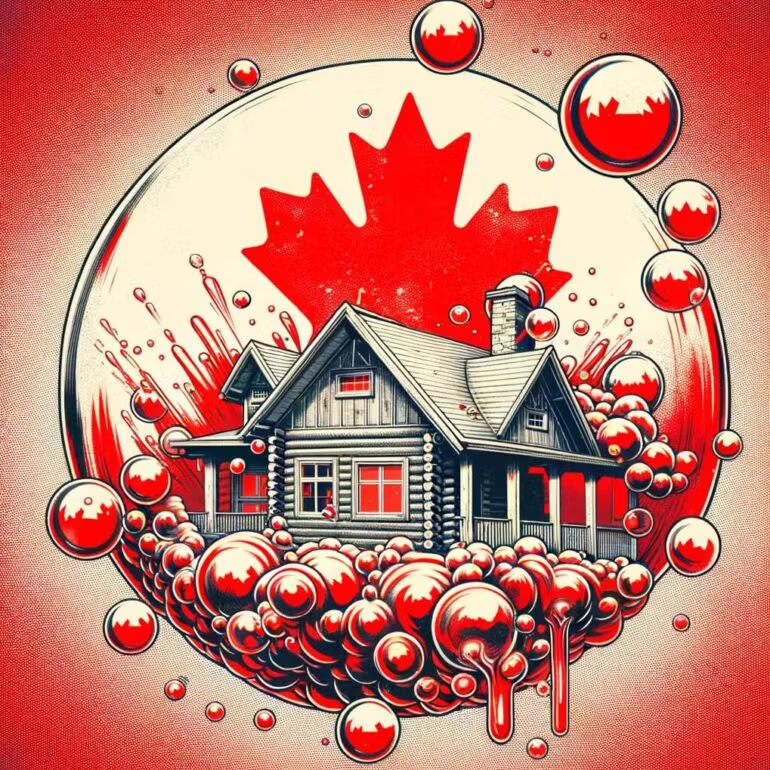
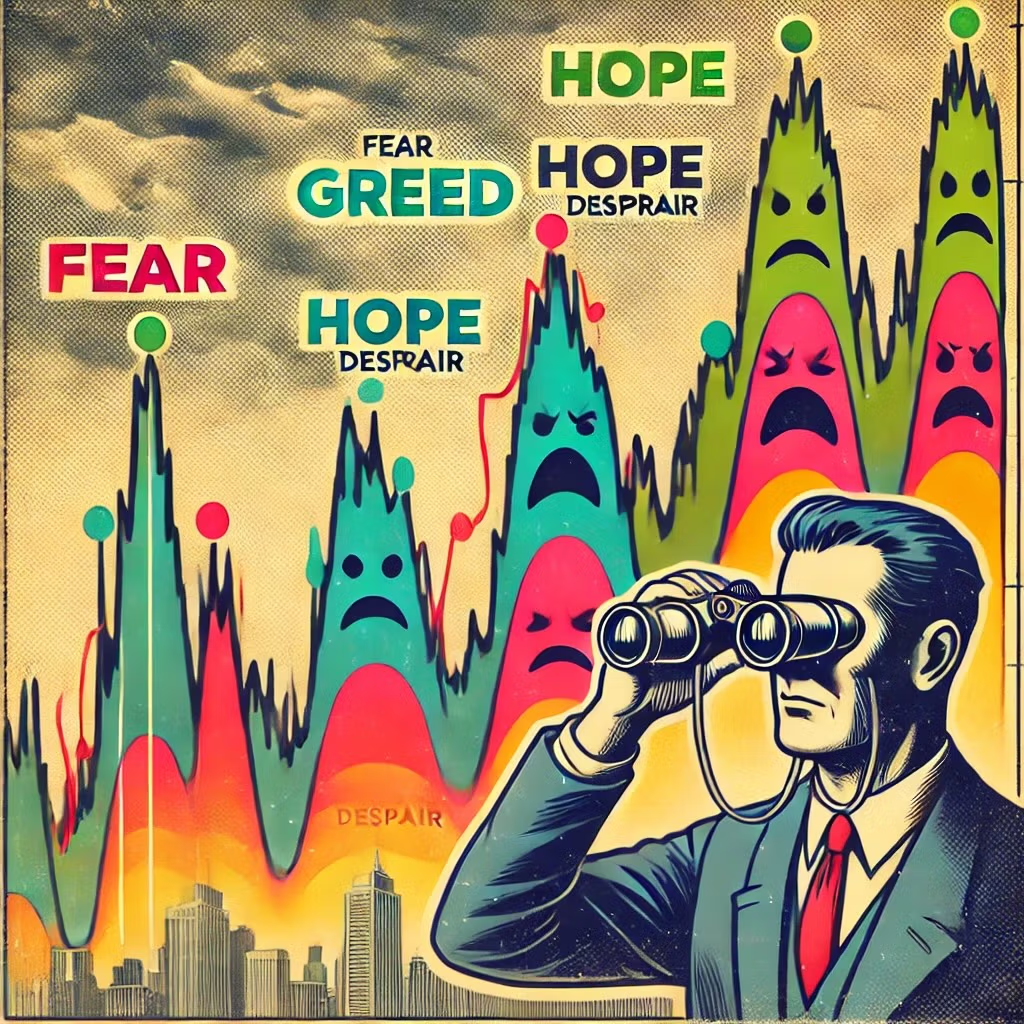



Japan never had the population growth or zoning and building restrictions that Canada has.
Japan has 338.2 people per square kilometer versus Canada at 4. And you think Canada has a population problem?
Has nothing to do with square kilometer. We are severely over populated with the highest immigration growth in the world! Shortage of Drs, some people are unable to receive cancer treatment because there are TOO MANY PEOPLE! Open your eyes!
people/ square km is a meaningless metric in Canada where only a fraction of the nation’s surface is livable territory with the necessary infrastructure. The article completely ignores that our housing crisis is driven by a severe shortage of construction over increasing rates of immigration. Japan or USA do not have these levels of population growth, a better comparison would be Australia and New Zealand.
Canada does find itself in significant trouble as far as real estate is concerned. However, I would never have imagined things getting as bad as they have.
And yet every news article says they don’t expect a major change in price with higher interest rates, and now is a good time to buy.
On a side note I wish I could have the satisfaction of watching these scumbags file for bankruptcy and/or driving by their tent on East Hastings
It has been a pleasure to read this article as this topic has affected me a lot in last 4 years. Every sentence of yours i completely agree with in this blog.
My background : Middle-aged Indian well settled in financial sector and working in Middle-east married to a canadian. Initially without having been to Canada myself, I had planned to leave my good job in ME and move after few years of marraige to Canada like millions of South Asians do and aspire for in search of a better lifestyle.
However, the more i visited Canada from 2018, every year for a month to visit my in-laws, the more dejected i felt in moving there permanently.
There are many reasons and I can honestly go on for very long on that topic in detail.
Medical service issues, basic education standards, overall safety and drug abuse getting worse, lack of many convenient services at affordable rates, very less salaries for professionals specially compared to other developed marktes, and the worst of all ofcourse, housing affordability as the income to home ratio of almost 20 (avg salary of 45K to 900K home values) in GTA and many other places is ridiculous.
Here, in ME and even in India, we have so many things to go for which are quite decent and that ratio is generally 10 times to income for similar homes.
As you said, even i had notice till last year the same insanity amongst many canadians where the only main topic of discussion everywhere is somehow related to housing and investing in housing and flipping them to earn millions. It’s like there’s just no other productive work or economic activity that i have seen in Canada other than housing as an industry. It really lacks depth as a mature economy of a developed country should be having in my opinion. The only thing that has been keeping this bonanza going is immigration. That is clearly the number one reason, which i think you have overlooked in your blog. Right from 2014 when the country made it more easier and invited people in larger numbers from all across the world, this real estate craze has just sky rocketed. A closer analysis of your own chart about real incomes vs disposable income proves that it just went berserk after 2015 and was still relatively OK compared to US till 2014. In short, although sad but true, its mainly te stupid South asians and mainly my countrymen who i think are the ones most responsible for this. Have seen and interacted with many India friends living there who told me how so many truck drivers in Brampton easily inflate their earnings with forged documents and keep on taking loans over loans to buy homes n flip thme for profits quickly. I think once a respectable person becomes Canadian PM (just hate Trudeau honestly) and puts a stop to the free immigration policies or atleast reduces the numbers, then it would surely trigger a domino effect on this keep on buying houses mentality amongst greedy asians who will get scrambling at the first sight.
Canada as a country is still attractive to millions of people and rightfully so for many of them. It still has many positives, but i feel it is no longer the country it used to be for immigrants before 2014.
To conclude, I have still not moved to Canada and have been delaying it with my wife as she is keen to be close to her family. However, for me, if i really had the choice I would never want to move there after seeing reality for last 5 years and the daily struggle that most of the middle class has to do to raise a family by working overtime or two jobs to pay off their high mortgages and other bills. I would rather enjoy my hard earned money in so many other better countries with amazing lifestyle and climate that offer real value for the buck.
This is the first time i have come across your website and would love to explore more and read your blogs.
Thanks for writing and sharing your experience and wisdom. Really appreciated!
Good analysis. The climate alone is very hard. It will take a long time for Canada to turn this real estate disaster around. I left in the early nineties. Tried to come back a few times, but just could not go through with it. Too many unknowns…plus add the politics…language issues…corruption…inflation…questionable health care.
Most the land in Canada is not suitable for residential construction, and even if you manage to get remote land at current bubble prices up north, you’ll be paying tens of thousands of dollars just to get the permits and pay lawyers to appeal and appeal the bureaucracy.
The grid is designed to keep Canadians close to the major cities and with the current government increasing immigration to 500,000 a year, demand for housing will increase due to artificial scarcity and urbanization.
It’s when the life savings of the newcomers are depleted that people eventually realize that Canadian real estate is overpriced.
Great blog. This blog is very informative and helpful. I really appreciate your work. Want to know more about real estate agent then visit realtors4you.ca
Hi guys love this editorial and incredible travel videos on YouTube .Keep up the great and inspiring content,love from Susan and Andrew in Vancouver!!
I’m ashamed to say our Housing Minister Sean Fraser told Bloomberg the Canadian Governments
“goal is not to decrease the value of their homes. Our goal is to build more units that are at a price that other people, who don’t currently have their needs met, can afford.”
Either he never heard of supply and demand or the Government will build cheap CMHC subsidized rentals for us wage slaves (Envision Chicken Coops or Plastic Capsule Hotels – shared toilet, shower and hotplate down the hall!) while maintaining Canada’s overpriced real estate for the year by year shrinking class of Fortunate Few.
Canada is the 2nd largest country in the world and sparsely populated, with resources to build affordable and liveable houses for all.
Thanks, Nomadic, for putting together so much valuable info in one place. Dr. Marc Faber is currently saying that the interest rates would go lower for the next six months. However, he points out that the interest rates would, afterwards, go higher for several decades. If so, a Canadian housing market crisis to come is ensured. How funny, for you, it’s like watching a train derail in slow motion, you’ve been saying it’s coming for so many years!!! The last time Canada had a housing market crisis, during the 1990’s, it was eventually saved by introducing large numbers of immigrant. What would save us from the next one, if any? Thank you again.
What countries would you consider moving to?
This is a fascinating read! The parallels between Canada and Japan in terms of their housing markets are striking. It’s alarming to see how rapidly property prices have escalated in Canada, and the potential consequences could be dire. I’m curious to see how policymakers will respond to this crisis and whether any lessons from Japan’s experience will be applied. Thanks for shedding light on this important topic!
This post raises some eye-opening points about the Canadian housing market. The comparison to Japan’s crisis is particularly striking. It makes me wonder how policymakers can effectively address the growing affordability issues without risking further destabilization. Looking forward to seeing how this develops!
This post raises some critical points about the Canadian housing market. The comparison to Japan’s real estate crisis is eye-opening. It’s alarming to see housing prices soar while affordability dwindles for average families. I wonder what measures the government could take to prevent a potential crash. Looking forward to more insights on this topic!
This comparison between Canada’s housing situation and Japan’s past crisis is eye-opening. It’s alarming to see how rapidly prices have skyrocketed, and the potential consequences for buyers and the economy are concerning. I’m curious about what measures can be taken to prevent a similar fallout. Looking forward to more insights on this topic!
This post really highlights the alarming trends in Canada’s housing market. The comparison to Japan’s situation is both intriguing and concerning. It makes me wonder if any proactive measures will be taken to mitigate the consequences of this bubble. What do you think could be the long-term impacts on the average Canadian?
This post raises some critical points about the Canadian housing market and its potential trajectory. I can’t help but wonder how government policies and interest rates will play a role in either exacerbating or alleviating this bubble. It’s fascinating yet concerning to compare the situation to Japan’s past, and I hope we can learn from their experience. Thanks for shedding light on such an important topic!
This is a thought-provoking read! The comparisons to Japan’s lost decades really hit home. It’s alarming to see how rising prices are outpacing wages in Canada, and I fear we might be headed for a tough correction. It’s crucial for more discussions around affordable housing solutions moving forward. Thanks for shedding light on this pressing issue!
This article raises some really important points about the Canadian housing market. It’s alarming to think we might be facing a crisis worse than Japan’s. I hope policymakers take the necessary actions to avoid a larger economic fallout. The affordability issue is becoming a major concern for many, and it’s crucial to find solutions that work for everyone.
This is a thought-provoking post! It’s surprising to see how the Canadian housing market is mirroring aspects of Japan’s crisis. The statistics are alarming, and it makes me wonder how long this can be sustained before we see a significant correction. I’m particularly interested in the impact this will have on first-time buyers and the overall economy. Thanks for sharing!
This post raises some critical points about the Canadian housing market and its potential bubble. The comparison to Japan is particularly thought-provoking. I wonder how long it will take for our government to implement effective measures to cool down the market before it spirals further out of control. It’s alarming to think about the long-term implications for both buyers and the economy as a whole. Thanks for shedding light on this issue!
This analysis of the Canadian housing market is eye-opening! The comparisons to Japan’s real estate crisis are particularly concerning. It’s alarming to think about the potential impacts on everyday Canadians if the bubble bursts. I hope policymakers take this issue seriously before it’s too late.
This analysis of the Canada housing bubble is eye-opening! It’s alarming to see how similar the situation is to Japan’s past crisis. I wonder if the government will take proactive steps to prevent a similar fate. What do others think about potential solutions?
This article really sheds light on the current state of Canada’s housing market. The comparisons to Japan’s real estate crisis are quite alarming! It’s unsettling to think that we could be facing a similar situation. I hope policymakers take these warnings seriously before it’s too late!
This post highlights some alarming trends in the Canadian housing market that definitely deserve attention. The comparison to Japan’s real estate crisis is thought-provoking and raises questions about how far this bubble could expand before it bursts. It seems crucial for potential buyers to be cautious and for policymakers to address the underlying issues driving these skyrocketing prices. Thanks for shedding light on such an important topic!
This analysis of the Canadian housing bubble compared to Japan’s situation is eye-opening. It’s alarming to see how rapidly prices have escalated, and the potential consequences for so many families is concerning. I hope policymakers can take proactive measures to address this before it spirals further out of control. Great post!